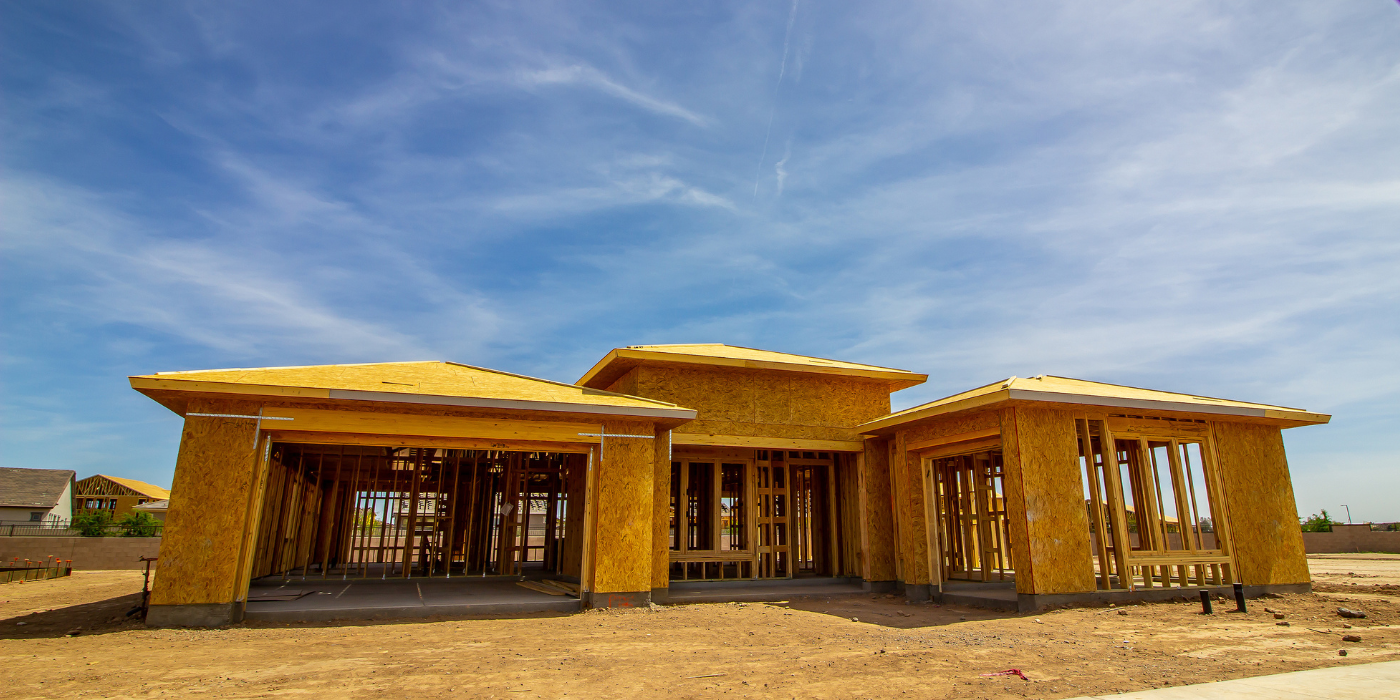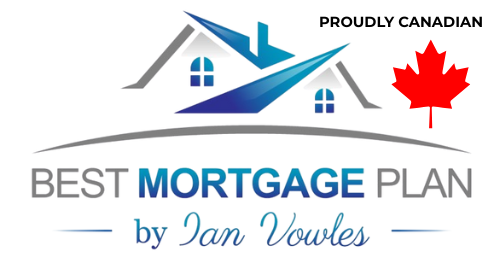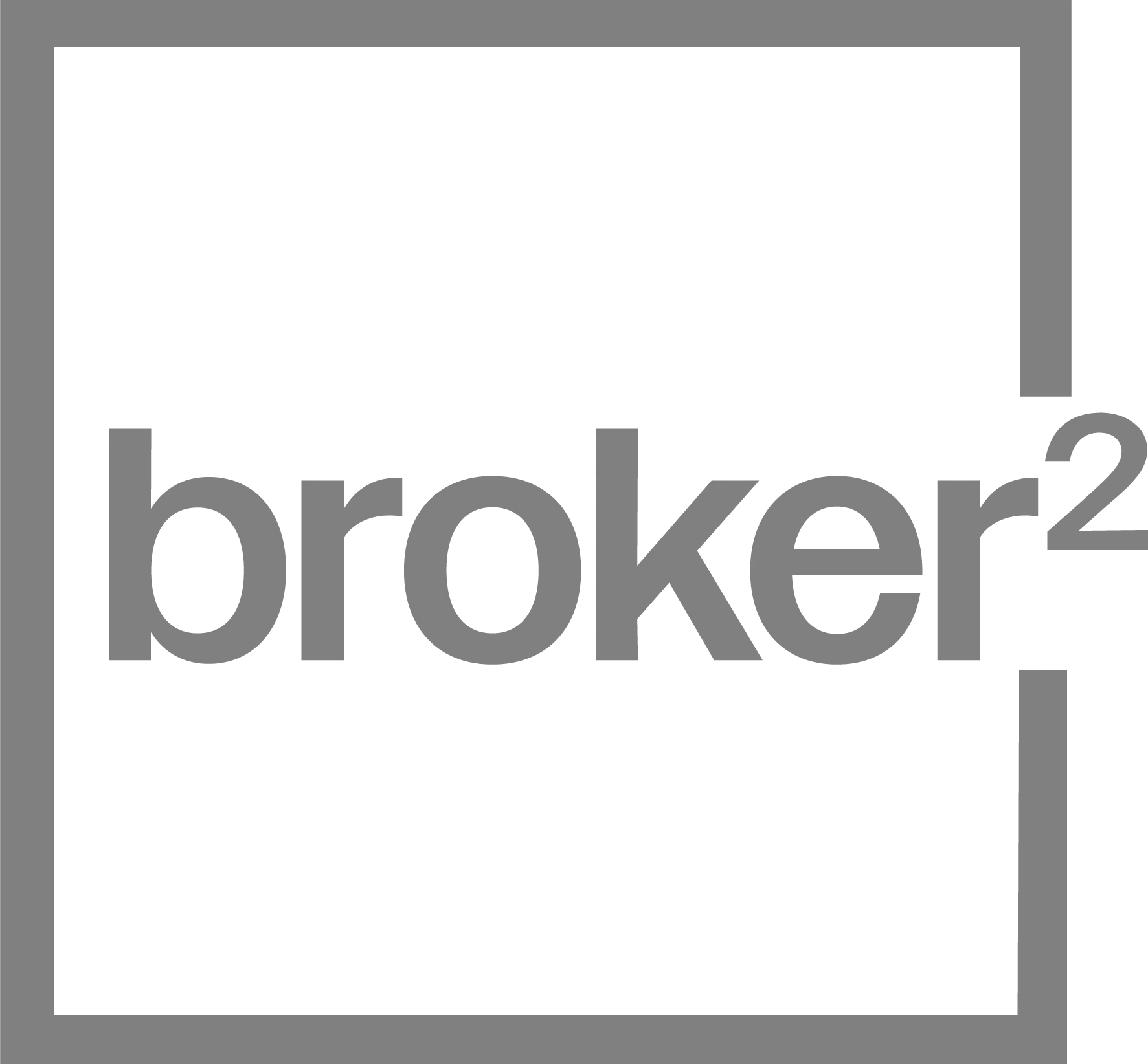Mortgage resources to keep you informed

Summer in Canada is short—but sweet. With warm weather and long evenings, it’s the perfect time to get outside and enjoy your outdoor space, no matter how big (or small) it is. Whether you have a tiny patio or a sprawling backyard, a few creative upgrades can go a long way toward turning your space into your personal summer oasis. Below are ideas for every type of outdoor space, from cozy balconies to large backyards! For Patio-Only Spaces Limited to a balcony or concrete patio? No problem! Small spaces can still offer big enjoyment. 1. Upgrade the Flooring Add interlocking tiles to give your concrete floor a more polished look—wood grain, grass panels, or composite styles are all popular, easy-to-install options. 2. Create an Outdoor Movie Zone Hang a pull-down screen or grab a portable stand, pair it with a mini projector, and voilà—your very own outdoor movie theatre under the stars! 3. Start an Herb Garden Railing planters are perfect for growing basil, mint, parsley, and more. Fresh herbs at your fingertips—and they smell amazing too! 4. Add Some Twinkle Wrap fairy lights around your railing or overhead beams to bring cozy vibes and nighttime charm. 5. Grill Like a Pro Maximize your BBQ season with a compact baby-que. Weber’s Q Series is a great option for small spaces without compromising grilling power. For Small Yards A little yard can still pack a lot of personality. Here are ways to make the most of every square foot: 1. Game Time! Add a mini putting green or an axe-throwing target (just be safe!) for quick bursts of backyard fun that don’t take up much space. 2. Warm Up Your Nights Add a heating lamp or portable fire bowl to keep your evenings cozy well into the fall. 3. Grow Your Own Produce Build or buy a raised garden box to grow tomatoes, cucumbers, lettuce, or other easy vegetables. Gardening is relaxing—and delicious! 4. DIY Bird Bath Make a pedestal bird bath using an old vase, a platter, and strong glue. You likely have everything you need already at home—and the local birds will thank you! For Big Yards If space isn’t an issue, the sky’s the limit! Here are some larger-scale projects to take your yard to the next level: 1. Build a Catio Yep, it’s a “cat patio”! Give your feline friends a safe way to enjoy the outdoors with a screened-in enclosure attached to your home. 2. Create a Permanent Fire Pit Use stones and a fire ring to build a beautiful, safe fire pit. You can even add airflow cutouts to reduce smoke—perfect for those marshmallow roasts! 3. Tile a Dining Area Install paving stones or tiles to define an outdoor dining space. Add a table, some string lights, and enjoy al fresco meals all summer long. Need More Inspiration? If none of these projects quite fit your vision, check out Home Depot’s DIY backyard ideas—complete with step-by-step instructions and material lists to help you bring your outdoor dreams to life. Soak It Up While It Lasts No matter the size of your space, there’s always something you can do to enhance your outdoor experience. So get out there, get creative, and make the most of these sunny summer days. See you back here in August—with more tips, tricks, and homeowner insights!

The idea of owning a vacation home—your own cozy escape from everyday life—is a dream many Canadians share. Whether it’s a lakeside cabin, a ski chalet, or a beachside bungalow, a second property can add lifestyle value, rental income, and long-term wealth. But before you jump into vacation home ownership, it’s important to think through the details—both financial and practical. Start With Your 5- and 10-Year Plan Before you get swept away by the perfect view or your dream destination, take a step back and ask yourself: Will you use it enough to justify the cost? Are there other financial goals that take priority right now? What’s the opportunity cost of tying up your money in a second home? Owning a vacation home can be incredibly rewarding, but it should fit comfortably within your long-term financial goals—not compete with them. Financing a Vacation Property: What to Consider If you don’t plan to pay cash, then financing your vacation home will be your next major step. Mortgage rules for second properties are more complex than those for your primary residence, so here’s what to think about: 1. Do You Have Enough for a Down Payment? Depending on the type of property and how you plan to use it, down payment requirements typically range from 5% to 20%+ . Factors like whether the property is winterized, the purchase price, and its location all come into play. 2. Can You Afford the Additional Debt? Lenders will calculate your Gross Debt Service (GDS) and Total Debt Service (TDS) ratios to assess whether you can take on a second mortgage. GDS: Should not exceed 39% of your income TDS: Should not exceed 44% If you’re not sure how to calculate these, that’s where I can help! 3. Is the Property Mortgage-Eligible? Remote or non-winterized properties, or those located outside of Canada, may not qualify for traditional mortgage financing. In these cases, we may need to look at creative lending solutions . 4. Owner-Occupied or Investment Property? Whether you’ll live in the home occasionally, rent it out, or use it strictly as an investment affects what type of financing you’ll need and what your tax implications might be. Location, Location… Logistics Choosing the right vacation property is more than just finding a beautiful setting. Consider: Current and future development in the area Available municipal services (sewer, water, road maintenance) Transportation access – how easy is it to get to your vacation home in all seasons? Resale value and long-term potential Seasonal access or weather challenges What Happens When You’re Not There? Unless you plan to live there full-time, you'll need to consider: Will you rent it out for extra income? Will you hire a property manager or rely on family/friends? What’s required to maintain valid home insurance while it’s vacant? Planning ahead will protect your investment and give you peace of mind while you’re away. Not Sure Where to Start? I’ve Got You Covered. Buying a vacation home is exciting—but it can also be complicated. As a mortgage broker, I can help you: Understand your financial readiness Calculate your GDS/TDS ratios Review down payment and lending requirements Explore creative solutions like second mortgages , reverse mortgages , or alternative lenders Whether you’re just starting to dream or ready to take action, let’s build a plan that gets you one step closer to your ideal getaway. Reach out today—it would be a pleasure to work with you.

If you’ve missed a payment on your credit card or line of credit and you’re wondering how to handle things and if this will impact your creditworthiness down the road, this article is for you. But before we get started, if you have an overdue balance on any of your credit cards at this exact moment, go, make the minimum payment right now. Seriously, log in to your internet banking and make the minimum payment. The rest can wait. Here’s the good news, if you’ve just missed a payment by a couple of days, you have nothing to worry about. Credit reporting agencies only record when you’ve been 30, 60, and 90 days late on a payment. So, if you got busy and missed your minimum payment due date but made the payment as soon as you realized your error, as long as you haven’t been over 30 days late, it shouldn’t show up as a blemish on your credit report. However, there’s nothing wrong with making sure. You can always call your credit card company and let them know what happened. Let them know that you missed the payment but that you paid it as soon as you could. Keeping in contact with them is the key. By giving them a quick call, if you have a history of timely payments, they might even go ahead and refund the interest that accumulated on the missed payment. You never know unless you ask! Now, if you’re having some cash flow issues, and you’ve been 30, 60, or 90 days late on payments, and you haven’t made the minimum payment, your creditworthiness has probably taken a hit. The best thing you can do is make all the minimum payments on your accounts as soon as possible. Getting up to date as quickly as possible will mitigate the damage to your credit score. The worst thing you can do is bury your head in the sand and ignore the problem, because it won’t go away. If you cannot make your payments, the best action plan is to contact your lender regularly until you can. They want to work with you! The last thing they want is radio silence on your end. If they haven’t heard from you after repeated missed payments, they might write off your balance as “bad debt” and assign it to a collection agency. Collections and bad debts look bad on your credit report. As far as qualifying for a mortgage goes, repeated missed payments will negatively impact your ability to get a mortgage. But once you’re back to making regular payments, the more time that goes by, the better your credit will get. It’s all about timing. Always try to be as current as possible with your payments. So If you plan to buy a property in the next couple of years, it’s never too early to work through your financing, especially if you’ve missed a payment or two in the last couple of years and you’re unsure of where you stand with your credit. Please connect directly; it would be a pleasure to walk through your mortgage application and credit report. Let’s look and see exactly where you stand and what steps you need to take to qualify for a mortgage.

If you’re a first-time homebuyer eyeing a new build or major renovation, there's encouraging news that could make homeownership significantly more affordable. The federal government has proposed a new GST rebate aimed at easing the financial burden for Canadians entering the housing market. While still awaiting parliamentary approval, the proposed legislation offers the potential for thousands in savings —and could be a game-changer for buyers trying to break into today’s high-cost housing landscape. What’s Being Proposed? Under the new legislation, eligible first-time homebuyers would receive: A full GST rebate on homes priced up to $1 million A partial GST rebate on homes between $1 million and $1.5 million This could mean up to $50,000 in tax savings on a qualifying home—a major boost for anyone working hard to save for a down payment or meet mortgage qualification requirements. Why This Matters With interest rates still elevated and home prices holding steady in many regions, affordability remains a challenge. This rebate could offer meaningful relief in several ways: Lower Upfront Costs: Removing GST from the purchase price reduces the total amount of money buyers need to save before closing. Smaller Monthly Payments: A lower purchase price leads to a smaller mortgage, which translates to more manageable monthly payments. Improved Mortgage Qualification: With a reduced purchase amount, buyers may find it easier to meet lender criteria. According to recent estimates, a homebuyer purchasing a $1 million new home could see monthly mortgage payments drop by around $240 —money that could go toward savings, home improvements, or simply everyday expenses. Helping Families Help Each Other This proposal also offers a win for parents who are supporting their children in buying a first home. Whether through gifted down payments or co-signing, a lower purchase price and more affordable monthly costs mean that family support can go further—and set first-time buyers up for long-term success. Is This the Right Time to Buy? If you’re thinking about buying a new or substantially renovated home, this proposed rebate could dramatically improve your financial position. Now is the perfect time to explore your options and make sure your mortgage strategy is aligned with potential policy changes. 📞 Let’s connect for a free mortgage review or pre-approval. Whether you’re buying your first home or helping someone else take that first step, I’m here to help you make informed, confident decisions.

Worried About Your Mortgage Renewal? You’re Not Alone If your mortgage renewal is coming up soon, you're likely feeling a bit of financial pressure—and you’re not the only one. A recent survey shows that over half of Canadian homeowners believe their upcoming mortgage renewal could impact their current living situation. With interest rates still higher than what many borrowers locked in before 2022, 45% of those renewing in the next 12 months expect their monthly payments to increase. Even though the Bank of Canada has held its key overnight rate steady at 2.75%, borrowing costs remain elevated compared to the low-rate years we saw earlier in the decade. And that’s changing how Canadians think about their finances. Changing Plans and Tightening Budgets Among those worried about their renewal, 73% say they’re already cutting back on discretionary spending—things like eating out, entertainment, or travel—to brace for higher mortgage payments. For many, it goes deeper than just trimming the budget. Nearly one in four surveyed homeowners said they’re rethinking their entire financial strategy. Some are pressing pause on home renovations (43%), while others are considering downsizing or relocating to a more affordable area (29%). A smaller group (15%) is even open to major lifestyle changes, like moving in with roommates or relocating to a new neighbourhood altogether. Fixed-Rate Mortgages on the Rise In this climate, most homeowners looking to renew are leaning toward fixed-rate mortgages, with 75% preferring the stability of predictable payments. For those facing uncertainty, locking in a rate for the next few years can offer peace of mind—even if it means paying a little more in the short term. First-Time Buyers Are Feeling It Too It’s not just current homeowners feeling the pinch. A separate survey found that more than half of Canadians planning to buy a home are cutting back on non-essential spending to save for their down payment or other buying costs. About 31% are even considering tapping into savings or investment accounts like TFSAs, RRSPs, or first-time home savings accounts to make their purchase possible. What This Means for You Whether you’re preparing to renew or purchase for the first time, this environment calls for smart, strategic planning. You’re not alone in feeling uncertain—but with the right guidance, you can navigate these changes confidently. Have questions about your upcoming renewal or wondering what type of mortgage is right for today’s market? Let’s connect. We're here to help you make informed, confident decisions about your home financing.

Porting your mortgage is when you transfer the remainder of your current mortgage term, outstanding principal balance, and interest rate to a new property if you’re selling your existing home and buying a new one. Now, despite what some big banks would lead you to believe, porting your mortgage is not an easy process. It’s not a magic process that guarantees you will qualify to purchase a new property using the mortgage you had on a previous property. In addition to re-qualifying for the mortgage you already have, the lender will also assess the property you’re looking to purchase. Many moving parts come into play. You’re more likely to have significant setbacks throughout the process than you are to execute a flawless port. Here are some of the reasons: You may not qualify for the mortgage Let’s say you’re moving to a new city to take a new job. If you’re relying on porting your mortgage to buy a new property, you’ll have to substantiate your new income. If you’re on probation or changed professions, there’s a chance the lender will decline your application. Porting a mortgage is a lot like qualifying for a new mortgage, just with more conditions. The property you are buying has to be approved So let’s say that your income isn’t an issue and that you qualify for the mortgage. The subject property you want to purchase has to be approved as well. Just because the lender accepted your last property as collateral for the mortgage doesn’t mean the lender will accept the new property. The lender will require an appraisal and scrutinize the condition of the property you’re looking to buy. Property values are rarely the same Chances are, if you’re selling a property and buying a new one, there’ll be some price difference. When looking to port a mortgage, if the new property’s value is higher than your previous property, requiring a higher mortgage amount, you’ll most likely have to take a blended rate on the new money, which could increase your payment. If the property value is considerably less, you might incur a penalty to reduce the total mortgage amount. You still need a downpayment Porting a mortgage isn’t just a simple case of swapping one property for another while keeping the same mortgage. You’re still required to come up with a downpayment on the new property. You’ll most likely have to pay a penalty Most lenders will charge the total discharge penalty when you sell your property and take it from the sale proceeds. The penalty is then refunded when you execute the port and purchase the new property. So if you are relying on the proceeds of sale to come up with your downpayment, you might have to make other arrangements. Timelines rarely work out When assessing the housing market, It’s usually a buyer’s market or a seller’s market, not both at the same time. So although you may be able to sell your property overnight, you might not be able to find a suitable property to buy. Alternatively, you may be able to find many suitable properties to purchase while your house sits on the market with no showings. And, chances are, when you end up selling your property and find a new property to buy, the closing dates rarely match up perfectly. Different lenders have different port periods Understanding that different lenders have different port periods is where the fine print in the mortgage documents comes into play. Did you know that depending on the lender, the time you have to port your mortgage can range from one day to six months? So if it’s one day, your lawyer will have to close both the sale of your property and the purchase of your new property on the same day, or the port won’t work. Or, with a more extended port period, you run the risk of selling your house with the intention of porting the mortgage, only to not be able to find a suitable property to buy. So while the idea of porting your mortgage can seem like a good idea, and it might even make sense if you have a low rate that you want to carry over to a property of similar value, it’s always a good idea to get professional mortgage advice and look at all your options. While porting your mortgage is a nice feature to have because it provides you with options, please understand that it is not a guarantee that you’ll be able to swap out properties and keep making the same payments. There’s a lot to know. If you’re looking to sell your existing property and buy a new one, please connect anytime. It would be a pleasure to walk you through the process and help you consider all your options, including a port if that makes the most sense!

If you’re looking to purchase a property, although you might not think it matters too much, the source of your downpayment means a great deal to the lender. Let’s discuss the lender requirements, what your downpayment tells the lender about your financial situation, a how downpayment helps establish the mortgage loan to value. Anti-money laundering Lenders care about your downpayment source because, legally, they have to. To prevent money laundering, lenders have to document the source of the downpayment on every home purchase. Acceptable forms of downpayment are money from your resources, borrowed funds through an insured program called the FlexDown, or money you receive as a gift from an immediate family member. To prove the funds are from your resources and not laundered money from the proceeds of crime, you’ll be required to provide bank statements showing the money has been in your account for at least 90 days or that you’ve accumulated the funds through payroll deposits or other acceptable means. Now, if you’re borrowing all or part of your downpayment, you’ll need to include the costs of carrying the payments on the borrowed downpayment in your debt service ratios. If you’re the recipient of a gift from a direct family member, you’ll need to provide a signed gift letter indicating that the funds are a true gift and have no schedule for repayment. From there, you’ll need to show the money deposit into your account. Financial suitability Lenders care about the source of the downpayment because it is an indicator that you are financially able to purchase the property. Showing the lender that your downpayment is coming from your resources is the best. This demonstrates that you have positive cash flow and that you’re able to save money and manage your finances in a way that indicates you’ll most likely make your mortgage payments on time. If your downpayment is borrowed or from a gift, there’s a chance that they’ll want to scrutinize the rest of your application more closely. The bigger your downpayment, the better, well, as far as the lender is concerned. The way they see it, there is a direct correlation between how much money you have as equity to the likelihood you will or won’t default on their mortgage. Essentially, the more equity you have, the less likely you will walk away from the mortgage, which lessens their risk. Downpayment establishes the loan to value (LTV) Thirdly, your downpayment establishes the loan to value ratio. The loan to value ratio or LTV is the percentage of the property’s value compared to the mortgage amount. In Canada, a lender cannot lend more than 95% of a property’s value. So, if you’re buying a home for $400k, the lender can lend $380k, and you’re responsible for coming up with 5%, $ 20k in this situation. But you might be asking yourself, how does the source of the downpayment impact LTV? Great question, and to answer this, we have to look at how to establish property value. Simply put, something is worth what someone is willing to pay for it and what someone is willing to sell it for. Of course, within reason, having no external factors coming into play. When dealing with real estate, an appraisal of the property will include comparisons of what other people have agreed to pay for similar properties in the past. You’ll often hear of situations where buyers and sellers try to inflate the sale price to help finalize the transaction artificially. Any scenario where the buyer isn’t coming up with all of the money for the downpayment, independent of the seller, impacts the LTV. All details of a real estate transaction purchase and sale have to be disclosed to the lender. If there’s any money transferring behind the scenes, this impacts the LTV, and the lender won’t proceed with financing. Non-disclosure to the lender is mortgage fraud. So there you have it; hopefully, this provides context to why lenders ask for documents to prove the source of your downpayment. If you’d like to talk about mortgage financing, please connect anytime; it would be a pleasure to work with you.

If you’re going through or considering a divorce or separation, you might not be aware that there are mortgage products designed to allow you to refinance your property and buy out your ex-spouse. If you’re like most people, your property is your most significant asset and is where most of your equity is tied up. If this is the case, it’s possible to structure a new mortgage that allows you to purchase the property from your ex-spouse for up to 95% of the property’s value. Alternatively, if your ex-spouse wants to keep the property, they can buy you out using the same program. It’s called the spousal buyout program. Here are some of the common questions people have about the program. Is a finalized separation agreement required? Yes. To qualify, you’ll need to provide the lender with a copy of the signed separation agreement, which clearly outlines asset allocation. Can the net proceeds be used for home renovations or pay off loans? No. The net proceeds can only buy out the other owner’s share of equity and/or pay off joint debt as explicitly agreed upon in the finalized separation agreement. What is the maximum amount that you can access through the program? The maximum equity you can withdraw is the amount agreed upon in the separation agreement to buy out the other owner’s share of the property and/or retire joint debts (if any), not exceeding 95% loan to value. What is the maximum permitted loan to value? The maximum loan to value is the lesser of 95% or the remaining mortgage + the equity required to buy out other owner and/or pay off joint debt (which, in some cases, can total < 95% LTV. The property must be the primary owner-occupied residence. Do all parties have to be on title? Yes. All parties to the transaction have to be current registered owners on title. Your solicitor will be required to confirm this with a title search. Do the parties have to be a married or common-law couple? No. Not only will the spousal buyout program support married and common-law couples who are divorcing or separating, but it’s also designed for friends or siblings who need an exit from a mortgage. The lender can consider this on an exception basis with insurer approval. In this case, as there won’t be a separation agreement, a standard clause will need to be included in the purchase contract to outline the buyout. Is a full appraisal required? Yes. When considering this type of mortgage, a physical appraisal of the property is required as part of the necessary documents to finalize the transaction. While this is a good start to answering some of the questions you might have about getting a mortgage to help you through a marital breakdown, it’s certainly not comprehensive. When you work with an independent mortgage professional, not only do you get a choice between lenders and considerably more mortgage options, but you get the unbiased mortgage advice to ensure you understand all your options and get the right mortgage for you. Please connect anytime; it would be a pleasure to discuss your needs directly and provide you with options to help you secure the best mortgage financing available. Also, please be assured that all communication will be held in the strictest of confidence.

One of the benefits of working with an independent mortgage professional is having lots of great financing options! Rather than dealing with a single lender with one set of products, independent mortgage professionals work with multiple lenders who offer a wide selection of mortgage financing options that provide more choice. Increased choice in mortgage products is beneficial when your situation isn’t “normal,” or you don’t quite fit the profile of a standard buyer. Purchasing a new construction home through an assignment contract would be a great example of this. Purchasing a new construction home through an assignment contract can be tricky as not every lender wants the added perceived risk of dealing with this type of transaction. Most of these lenders won’t come out and say it; instead, they add a significant list of qualifying conditions to make the process harder. The good news is, there are lenders available exclusively through the broker channel that have favourable policies for assignment purchases. Here are some of the highlights: All standard purchase qualifications apply, including applicable income verification, established credit, and required downpayment Assignments can be at the original purchase price or current market value Minimum 620 beacon score with no previous bankruptcies or consumer proposals The full downpayment must come from the purchaser and not include any incentives from the seller. As far as documentation goes, the lender will want to see the original purchase agreement signed by all parties, the MLS listing, the assignment agreement signed by the builder, the original purchaser, and the new buyer. The lender will also want to see the side agreement between the original purchaser and the new buyer, including the amended purchase price. The lender will want to substantiate the value through a full appraisal. Now, as every situation is different, this list of conditions is in no way exhaustive but meant to show that assigning a new construction purchase contract is doable while highlighting some of the terms necessary to secure financing. If you’re looking to purchase new construction through an assignment contract, or if you’d like to discuss purchasing a home through traditional means, please connect anytime! It would be a pleasure to outline the mortgage products on the market that won’t limit your financing options!

You’ve most likely heard that there are two certainties in life; death and taxes. Well, as it relates to your mortgage, the single certainty is that you will pay back what you borrow, plus interest. With that said, the frequency of how often you make payments to the lender is somewhat up to you! The following looks at the different types of payment frequencies and how they impact your mortgage. Here are the six payment frequency types Monthly payments – 12 payments per year Semi-Monthly payments – 24 payments per year Bi-weekly payments – 26 payments per year Weekly payments – 52 payments per year Accelerated bi-weekly payments – 26 payments per year Accelerated weekly payments – 52 payments per year Options one through four are straightforward and designed to match your payment frequency with your employer. So if you get paid monthly, it makes sense to arrange your mortgage payments to come out a few days after payday. If you get paid every second Friday, it might make sense to have your mortgage payments match your payday. However, options five and six have that word accelerated before the payment frequency. Accelerated bi-weekly and accelerated weekly payments accelerate how fast you pay down your mortgage. Choosing the accelerated option allows you to lower your overall cost of borrowing on autopilot. Here’s how it works. With the accelerated bi-weekly payment frequency, you make 26 payments in the year. Instead of dividing the total annual payment by 26 payments, you divide the total yearly payment by 24 payments as if you set the payments as semi-monthly. Then you make 26 payments on the bi-weekly frequency at the higher amount. So let’s use a $1000 payment as the example: Monthly payments formula: $1000/1 with 12 payments per year. A payment of $1000 is made once per month for a total of $12,000 paid per year. Semi-monthly formula: $1000/2 with 24 payments per year. A payment of $500 is paid twice per month for a total of $12,000 paid per year. Bi-weekly formula: $1000 x 12 / 26 with 26 payments per year. A payment of $461.54 is made every second week for a total of $12,000 paid per year. Accelerated bi-weekly formula: $1000/2 with 26 payments per year. A payment of $500 is made every second week for a total of $13,000 paid per year. You see, by making the accelerated bi-weekly payments, it’s like you end up making two extra payments each year. By making a higher payment amount, you reduce your mortgage principal, which saves interest on the entire life of your mortgage. The payments for accelerated weekly payments work the same way. It’s just that you’d be making 52 payments a year instead of 26. By choosing an accelerated option for your payment frequency, you lower the overall cost of borrowing by making small extra payments as part of your regular payment schedule. Now, exactly how much you’ll save over the life of your mortgage is hard to nail down. Calculations are hard to do because of the many variables; mortgages come with different amortization periods and terms with varying interest rates along the way. However, an accelerated bi-weekly payment schedule could reduce your amortization by up to three years if maintained throughout the life of your mortgage. If you’d like to look at some of the numbers as they relate to you and your mortgage, please don’t hesitate to connect anytime; it would be a pleasure to work with you.


